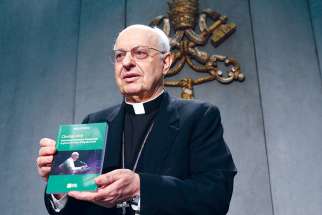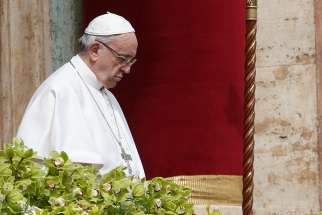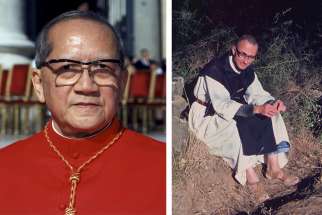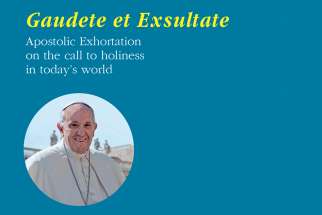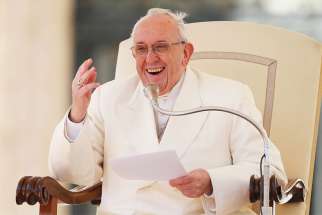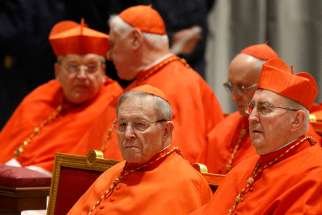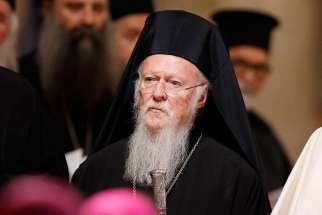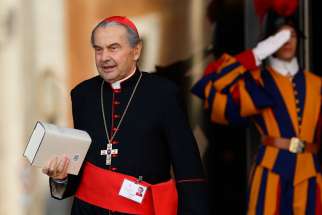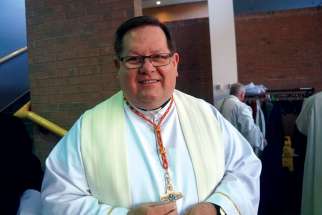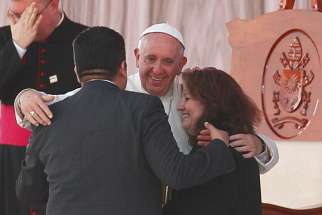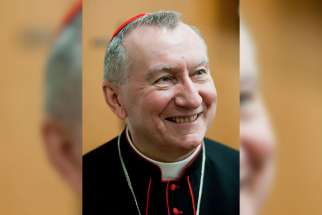YSN reacts to Christus Vivit
On April 2, Pope Francis released his apostolic exhortation in response to the Synod on Young People last October. The YSN team carefully combed through the document and here are some of their reactions.
Pope issues holiness challenge, expands 'pro-life' meaning
Holiness means bearing witness in everything we do, being 'saints next door', Pope says
Pope's exhortation on holiness to be released April 9
Patriarch Bartholomew says 'Amoris Laetitia' is about God's mercy
VATICAN CITY – Knowing the debate surrounding Pope Francis' apostolic exhortation on the family, Orthodox Ecumenical Patriarch Bartholomew of Constantinople said the document "first and foremost recalls the mercy and compassion of God and not just moral norms and canonical rules."
Four cardinals ask Pope Francis to clarify 'Amoris laetitia'
VATICAN CITY- Citing conflicting interpretations of Pope Francis' apostolic exhortation on love in the family, four prominent cardinals wrote a letter to him in September requesting that he “resolve the uncertainties and bring clarity.”
Media reports miss ‘most beautiful aspects’ of 'Amoris Laetitia'
OTTAWA – The Archbishop of Quebec and Primate of Canada has expressed disappointment that most media reports on the family-centred Apostolic Exhortation by Pope Francis have focused on homosexuality and on communion for the divorced and remarried.
VATICAN CITY - Pope Francis’ landmark text on the family, scheduled for release on Friday, is expected to encourage a more open attitude toward the non-nuclear family but contain no change in Church doctrine.
Apostolic exhortation on the family could come soon, says cardinal
VATICAN CITY - Cardinal Pietro Parolin, Vatican secretary of state, said an apostolic exhortation on the family following the recently concluded Synod of Bishops could be released soon.
Emissary of hope
As war raged in Syria and an anti-Muslim film ignited violence across the Arab world, Pope Benedict calmly arrived last week in Lebanon as a “pilgrim of peace.”
The 85-year-old pontiff would have been excused if, citing age and security concerns, he’d postponed this trip. During his three-day stay, 25 people were injured and a man killed in Lebanon’s second largest city, Tripoli, during protests aimed at an American film that mocks Islam. The day after he left, missiles from Syrian jets hit Lebanese territory. The region, habitually unsafe, is particularly dangerous right now.
The purpose of the trip was to officially endorse the Apostolic Exhortation that was drafted following the 2010 Synod of Bishops for the Middle East. That task could have been accomplished in the Vatican, of course, and transmitted live worldwide by video-conferencing and Internet technology. Yet the Pope dismissed that option.
Instead, he made the right and courageous decision to stand beside the Christians of the region and, by his physical presence, acknowledge the hardships they endure by living in nations that are often hostile to Christianity. That simple act alone says much about the Pope. Then, addressing some 20,000 young people from several Middle East countries, he urged them to be the vanguard to keep Christianity alive in the lands of its birth.
Middle East Christians, facing social and economic discrimination and seeking safety for their families, have been emigrating in droves to Europe and North America. At the current pace, Christianity might virtually disappear from the region in a generation. It is asking much of young Christians to endure financial and religious hardship, but that is exactly what the Pope implored. To be effective, the message had to be delivered in person.
“I am aware of the difficulties you face daily, on account of instability and a lack of security, and your sense of being alone and on the margins,” he said. But, he added, “You are meant to be protagonists of your country’s future.”
The Pope’s Apostolic Exhortation lays a common-sense framework for Middle East Christianity to endure. It emphasizes dialogue, respect, equality, tolerance and forgiveness among Christians, Muslims and Jews, while denouncing secularism and fundamentalism. The Pope urged young people to never be afraid or ashamed of being Christian and he affirmed their right to religious liberty, to live publicly as Christians and to participate fully in civil life.
The Pope arrived in Lebanon as a pilgrim of peace but departed as an emissary of inspiration and hope. He ignored the latest regional upheaval and chose boldly to stand among the anxious Christians to let them know in person that he will not abandon them. That may have been the most important message of all.


